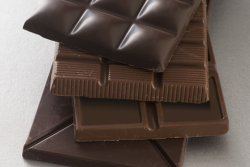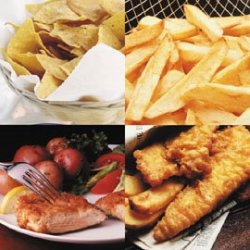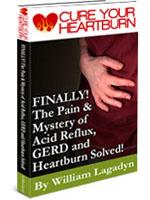Foods That Cause Heartburn
Identifying the foods that cause heartburn and avoiding them can make life so much easier for you.
As trigger foods are individual, you need to discover what yours are.
How Can Food Cause Heartburn?
1 - Certain foods actually act as muscle relaxants, enticing the elastic ring of muscles at the mouth of the stomach, called lower esophageal sphincter (LES), to get lazy and open up. Since the pressure is greater inside the stomach than out, such relaxation of the ring causes a spurt of stomach contents and acid upward into the oesophagus. If this happens enough, the oesophagus may become inflamed by the repeated exposures to acid.Then even swallowing certain irritating foods can trigger spasms of pain. So the pain of heartburn can be caused by food going down as well as by a reflux action sending caustic stomach juices back up.
Obviously, the more acidic the stomach juices, the greater the burning sensation and potential damage to the oesophageal wall.
2 - Food can increase acidity of stomach juices, making them more painful when they wash up into the oesophagus. Foods that commonly spur stomach acid secretion are coffee (regular and decaf), colas, beer and milk.
3 - Among the foods that cause heartburn are citrus and tomatoes, hot spicy foods and coffee. These foods when swallowed can directly contact an already damaged oesophagus, causing irritation and burning.
4 - Eating too fast and too much can overload the stomach, making it overfull, pressuring a weakened sphincter muscle to pop open.
5 - Lying down, especially on your right side, too soon after eating also thwarts gravity, pushing food up against the muscle, encouraging it to open.
6 - Carrying too much weight around the abdomen can also put pressure on the sphincter muscle, weakening it and promoting reflux. In that case, losing weight often alleviates heartburn attacks.
List of the most likely foods
that cause heartburn:
Chocolate

This may come as bad news to many people, but chocolate is one of the most common foods that cause heartburn.
Donal Castell, M.D., professor of medicine at the University of Pennsylvania School of Medicine, has spent more than twenty years examining the foods that cause heartburn and probing the exact mechanisms by which various foods precipitate heartburn.
He started investigating the villainy of chocolate because so many of his patients complained of heartburn after eating chocolate-chip cookies and fudge brownies.
Dr. Castell discovered that chocolate acts like a tranquilizer on the sphincter muscle that's supposed to guard against invasion of stomach acid.
What makes the muscle relax, he thinks, is contact with a family of chemicals in chocolate called methylxanthines.
Three of these chemicals are suspected of luring the muscle to relax: caffeine, theophylline and theobromine.
Of these, Dr. Castell calls theobromine the strongest; unfortunately, chocolate has the higher concentration of smooth-muscle-relaxing theobromine than any other common food.
He performed several tests to prove how chocolate behaved and invariably those who suffered with frequent heartburn reacted with detectable increase of stomach acid in their oesophagus.
However, chocolate didn't provoke an acid back-flow in those who rarely or never had heartburn. So Dr. Castell warns that chocolate is a special threat to those who suffer with heartburn.
Chocolate, especially milk chocolate, is a multiple threat among the foods that cause heartburn, because it contains at least four substances (caffeine, theobromine, theophylline and fat) that can loosen the tight grip of the lower esophageal sphincter (LES), letting burning stomach acid escape up into the oesophagus, causing heartburn.
Fatty Foods

Fried foods, milkshakes, cheese, hamburgers or any other kind of fatty food are definitely major foods that cause heartburn.
In fact, according to Dr. Castell, fatty foods are nearly twice as likely to aggravate heartburn in susceptible people as chocolate alone.
About 76% of such people are stricken with heartburn after eating high-fat foods, compared with 40% after eating chocolate.
More alarming, regularly eating lots of fat is likely to push you over the edge into chronic heartburn.
Fat-rich foods do lower sphincter muscle pressure, allowing acid backwash, probably because fat encourages the release of certain hormones, particularly, cholecystokinin from the lining of the stomach that regulate muscle control.
Fat also delays emptying of the stomach, so high levels of acid and food hang around longer, giving them more opportunity to gush back upward.
Many people drink milk to alleviate the symptoms of heartburn. Dairy products have been shown to trigger symptoms, but more symptoms were provoked with milk with higher fat contents, suggesting that fat was the culprit, rather than the milk itself.
Spicy Foods
It is true that pungent, spicy foods are among the foods that cause heartburn.
Take raw onions, for example. Gastroenterologists at the Oklahoma Foundation for Digestive Research and Presbyterian Hospital in Oklahoma City heard so many patients complain of heartburn after eating spicy meals with onions that they decided to test onions.
On various tests, researchers found that the onions caused no heartburn or other distress whatsoever in the normal men and women. But about 40 to 50% of the heartburn subjects suffered reflux episodes, increased acid in the oesophagus and heartburn, says Mark Mellow, M.D. Those with frequent heartburn also tallied up more belches.
One surprise, according to Dr. Mellow: The acid exposure in the oesophagus grew steadily worse in the two hours after eating the onions.
This shows onions are potent and long-lasting in promoting heartburn. The onions used in the study were raw. Whether cooking onions reduces the risk of heartburn is unclear, he says.
Although it's assumed that onions cause the sphincter muscle to relax, it's possible, says Dr. Mellow, that onions also directly irritate the oesophagus.
Once the oesophagus is damaged by assaults of the stomach acids, certain foods tend to irritate the oesophagus as they pass through, causing burning and painful sensations.
So although onions are one of the most healthful foods, if you suffer with heartburn you might want to leave them out of your diet. At least, until your digestion improves; often you may be able to eat some once your heartburn subsides.
Heartburn patients most often complain about citrus juices and hot spicy tomato-based foods.
Tests indeed show that these foods don't feel good going down if you have a sensitive oesophagus induced by frequent attacks of heartburn.
Whether spicy and pungent foods bring on heartburn sometimes depends on how much of it you eat.
One prominent gastroenterologist says he can bring on heartburn by eating four - but not three - slices of pepperoni pizza. So it's not so much the foods that cause heartburn, but the amount eaten.
Alcohol
Alcohol, especially if you drink it shortly before going to bed, can trigger heartburn attacks, notably in those with frequent reflux problems, but even in ordinary healthy people.
During the night, alcohol tends to relax the sphincter muscle, allowing acid to seep up into your oesophagus without your knowing it.
That's what Scottish researchers at the University of Dundee found in a test of 17 men and women who didn't have reflux or heartburn symptoms.
The volunteers drank 4 oz./113 g. of Scotch whiskey (40% alcohol) neat or with 4 oz. of water. They usually had the Scotch at least 3 hours after eating the evening meal, at about 10 P.M. and then went to bed within two hours. On other nights they drank a placebo drink, which was mainly tap water.
During the night, investigators monitored the acid levels in their oesophagus. Fully seven of the seventeen, or 41%, experienced prolonged reflux events, with acid in their oesophagus, although they didn't feel heartburn pain.
The acid attacks most frequently occurred 3 1/2 hours after drinking the alcohol.
The acid remained in the oesophagus for an average 47 minutes, and in some cases more than 1 1/2 hours.
Once you've found out which are the foods that cause heartburn in your case, you might want to know what are some of the natural remedies that can help relieve heartburn and indigestion as well as which healing foods are particularly good for your condition.
Select an article from the list below to read next:
Natural Remedies for Heartburn vs. Antacids
Heartburn Remedies and Indigestion Relief
Indigestion Causes and Symptoms
Causes of Heartburn and Acid Reflux
Return to Foods' Healing Power from Foods That Cause Heartburn
Search for information on this site:
Receive Discover the Power of Healing Foods! Free
Newsletter
Articles in This Series:
Causes of Heartburn and Acid Reflux
Indigestion Causes and Symptoms
Natural Remedies for Heartburn
Heartburn Remedies and Indigestion Relief
Heartburn During Pregnancy - Healing Foods to Relieve Heartburn
Check Out This Offer:
This book will show you how Heartburn and Acid reflux are not diseases that require expensive drugs for the rest of your life!


New! Comments
Have your say about what you just read! Leave me a comment in the box below.